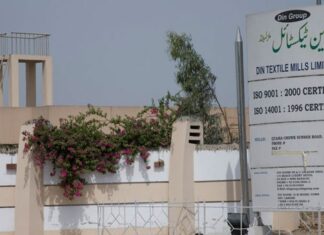ISLAMABAD: Telecom sector has emerged as a prominent contributor to Pakistan’s economy, as the sector’s contributions to the national exchequer showed an increase of 129pc in 2020 when compared with 2019, despite the economy being under pressure due to the Covid-19 outbreak.
As per the Pakistan Telecom Authority’s ‘Annual Report 2020’ released on Friday, the sector contributed Rs278 billion (including PTA deposits to national exchequer) in FY2020 as compared to Rs121 billion in FY2019, registering a year-on-year growth of 129pc.
“A surge in demand for telecom services due to lockdown resulted in significant growth not only in subscriber base but also in the usage of telecom services,” the report stated. “Today, data usage stands at 4,498 Peta Bytes (FY2020) as compared to 2,545 Peta Bytes (FY2019), showing a growth of over 77pc. This substantial growth would not have been possible if the networks were not upgraded.”
Pakistan currently has international bandwidth connectivity of 3.1 Tera Bytes and around 47,000 cell sites, of which 90pc are 4G-enabled sites.
According to the report, total broadband subscription in the country grew by 175pc in the last five years. Broadband subscribers crossed 90 million in FY2020, showing a growth of around 8pc over last year, whereas the country’s broadband penetration stood at 42.2pc during the year under review.
“Telecom networks are currently available to 87pc of the population and PTA is working with operators to increase their network coverage for the remaining 13pc unserved people of the country,” the report read. “The total teledensity now stands at 82pc with over 172 million mobile subscribers and 2.2 million fixed-line subscribers.”
In 2020, Foreign Direct Investment (FDI) across the economy was affected due to global lockdowns; however, telecom sector made a hefty share of 25pc ($623 million) in the total FDI received by the country. Total investments made by the local operators grew 14.25pc to $734 million in FY2020.
The overall revenues of the telecom sector reached Rs537 billion last year, which were generated mainly by the mobile sector. Financial gains were equally enjoyed by telecom consumers; affordability of telecom services in Pakistan has improved over the years, as the per-GB broadband price is currently as low as $0.20, which is among the lowest in the region.
Similarly, due to the introduction of Device Identification & Registration System (DIRBS), government revenues increased manifold with tax collection on handset imports. The local manufacturing of handsets has enlivened the telecom ecosystem, with growth in local 4G device manufacturing crossing 34pc.
Pakistan experienced trials of 5G services which were one of the few firsts in the South Asia. PTA is aiming for spectrum auction of LTE, VoLTE services in 2021 as a precursor to 5G. The regulator is also gearing up for auction of spectrum for high speed broadband services in AJK & GB.
The PTA report further stated that the regulator last year awarded 110 licences for different telecom services and issued 91 commencements of service certificates to the operators. PTA conducted QoS surveys across Pakistan for data, voice and SMS services and the operators were directed to take corrective measures where they underperformed. It also conducted a number of successful raids against illegal VoIP setups this year to curb grey telephony.
PTA was ranked as 4th generation telecom regulator by the ITU, which places the authority in top five regulators of Asia-Pacific region. The Pakistan Citizen Portal also recognized PTA as the best performing organization in complaint redressal satisfaction.
Commenting on the situation arising due to Covid-19, the PTA report further stated that the year 2020 was an extraordinary year around the world, as unexpected, unforeseen and unanticipated events unfolded and changed the way world was functioning. “As the world’s focus shifted towards telecoms and digitalization, the global telecom sector responded to the demands and so did Pakistan. Being at the forefront, while the country was acclimatizing to the changed conditions towards normalization, PTA assured network upgradations, traffic optimization, load balancing that resulted in uninterrupted service provision.”























